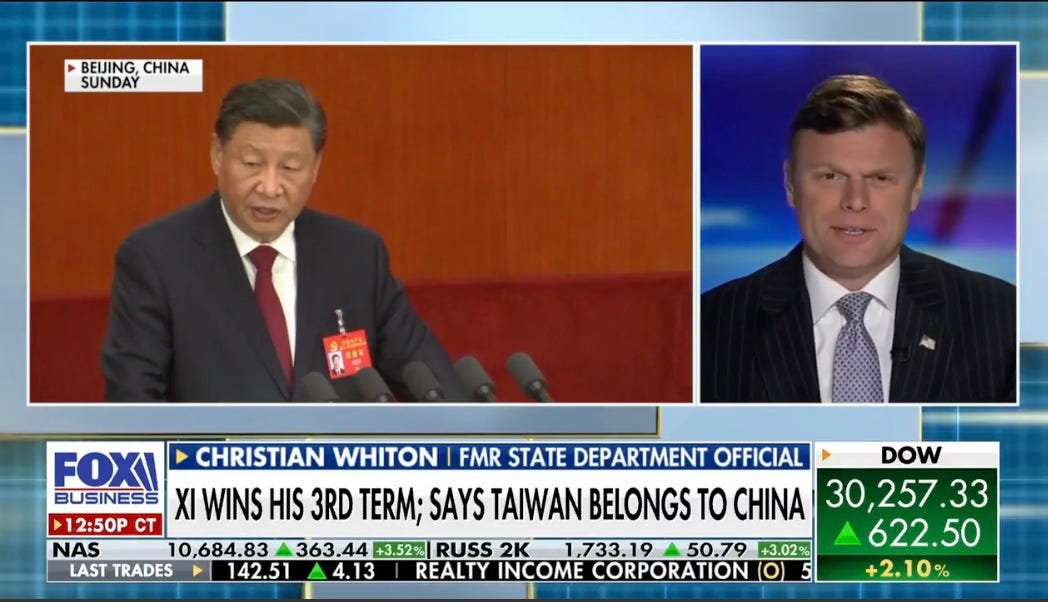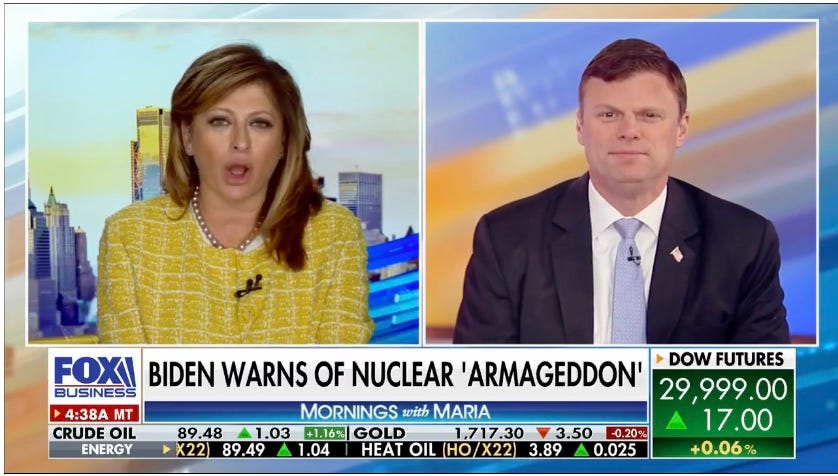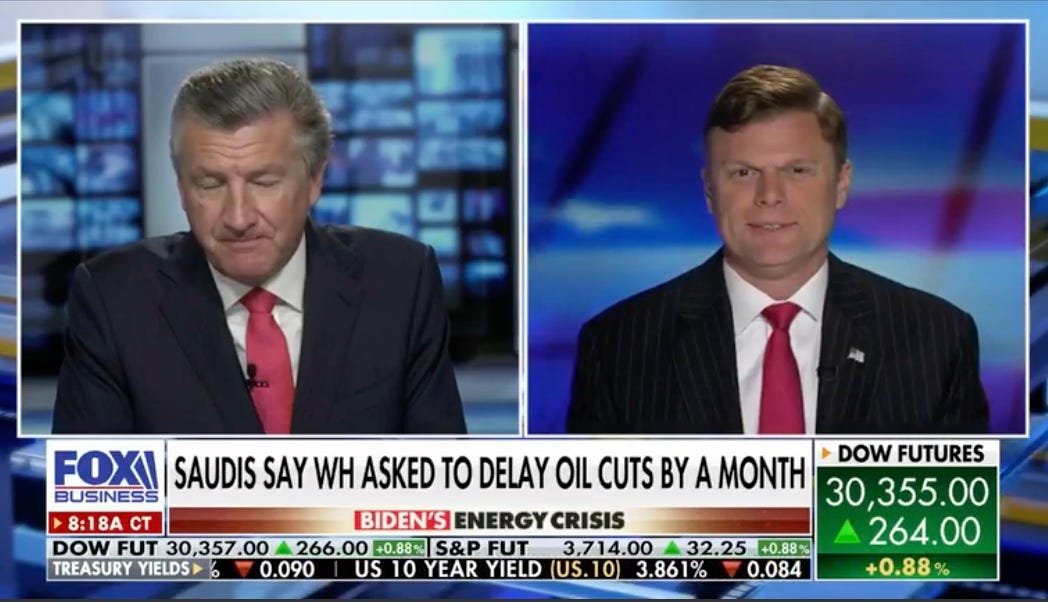End of Superpower Monopoly Can Be Good For America
The unipolar margin of error led to incompetent foreign policy and extreme deficit spending
John le Carre, the famous British spy novelist who was himself a British spy for a period, appeared on “The Charlie Rose Show” in July 1993 to promote his new book set after the Cold War and also to discuss his view of the changing world. The prolific, mildly anti-American author declared that the United States was now the only superpower and predicted, “I think it’s going to be a great period for the United States, when it does discover that altruistic war, alas, is going to be part of its future destiny…”
Later in the interview he added, “I don’t think that isolationist or parochial perceptions of the world’s future are tenable anymore. We know it’s a global village. Even the European concept is too limiting.” He didn’t know it, but le Carre had neatly encapsulated the dubious assumptions and features of the dawning era of globalism, unipolar interventionism, and nation-building.
The Cold War was over and the Soviet Union was gone. The United States and its military allies trounced Iraq in the Gulf War. The western economic revival of the 1980s was about to be followed by technology-led economic boom. It wasn’t all smooth sailing for the next 20-30 years. But even amid jihadist terrorist attacks and insurgencies, wars that were indecisive or outright failures, financial crises and prolonged economic stagnation, America could rest on the assumption that it would be the sole economic and military superpower sitting at the pinnace of a unipolar world. It left a lot of room for error, which the Baby Boom generation, as it began holding power in America beginning in that same year of 1993, was more than willing to use.
Today, that era is ending. However, it is possible that the United States will prosper during what comes next even as its position is less paramount.
It is hard to conceive of now, but a year before the le Carre interview, in 1992, a businessman named Ross Perot briefly had more support in polls than either incumbent President George H. W. Bush or challenger Bill Clinton. Perot ran primarily on alarm that the national debt had climbed to $4 trillion or 61 percent of GDP. Today it is $30 trillion or 123 percent of GDP.
A large part of the country thought that government spending and debt at the time were unsustainable and risking a national crisis. They were wrong. The size and growth of the U.S. economy and the supremacy of the U.S. dollar created a situation in which politicians could spend and take on new foreign and domestic obligations with few consequences. When the pool of dollars is enormous, racking up new debt and having the Federal Reserve print new dollars to buy that debt has less of an impact. Whereas high military spending as late as the Vietnam War era had, among other causes, resulted in inflation, the global pool of dollars had become so large by the late 1990s that deficit spending was less consequential.
Politicians caught on fast. I remember during the Bush administration in the mid-2000s when a colleague complained to me that when he testified about his budget on Capitol Hill, he could not tell the difference between Democrats and Republicans. They all wanted to spend more.
The benefits to America of this unipolar margin of error were significant. Washington financed the Global War on Terror without requiring any financial sacrifices of the population at large. Instead of a depression after the 2008 financial crisis, Americans endured a perhaps preferable decade of economic stagnation and even then saw a significant expansion of the welfare state. The over-financialization of the U.S. economy masked the deep social and economic dislocation being caused by the loss of manufacturing during those decades—at least until the 2016 election when Donald Trump made it a major issue.
The unipolar margin of error also masked sloppiness in military and foreign affairs. The collapse in Afghanistan last year was only the greatest of a string of disappointments and miscalculations. Washington still allows the wealthy moochers of Europe to shift their defense burden while imposing unfair tariffs and other trade barriers on America. Successive administrations have recognized the growing military threat from China, but have not shifted resources from Europe or Middle East backwaters like Syria to the Pacific.
However, Washington’s politicians and Federal Reserve officials have finally gone too far. Federal spending increased more than 50 percent from 2019 to 2021. The Federal Reserve more than doubled its debt holdings when it bought mortgages and government bonds with newly printed money. The result is inflation higher than it has been in 40 years. Compounding this is a spike in energy prices—both domestic and global—caused in the short-term by sanctions on Russia and over the longer term by the globalist elite’s civic religion of climate change alarmism.
Our politicians don’t realize it yet, but they will have to start making hard choices in the coming years. Any additional spending is likely to lead to higher inflation. The end of more than a decade of effectively zero interest rates for governments means that America’s $30 trillion in debt will be harder to service with interest payments costing much more than those due from the 2.07 percent average rate paid by the Treasury today. The defense budget will have to be cut along with domestic spending.
The dominance of the U.S. dollar is also in question over the long term. It isn’t just governments like those of Iran and North Korea that dislike the power Washington has from possessing the supreme reserve currency. China is taking steps to insulate itself from the risk of the financial sanctions Washington applied to Russia, including the unprecedented expropriation of Moscow’s foreign reserves. Beijing has already cut its holdings of U.S. bonds despite its constant accumulation of dollars from unbalanced trade. Major economies like Brazil, India, Indonesia, and the Arabian Gulf have declined to join Washington’s economic sanctions and would be open to a foreign-exchange system less reliant on the dollar, even though there are risks with any alternative. Some Russian banks can now transfer funds and lend in yuan outside of the western SWIFT mechanism used by most banks. Saudi Arabia has considered accepting payment for oil from China in yuan instead of dollars. This is a very small start, but it is conceivable that there will be more alternatives to running all international financial transactions through the dollar, which will be a world with less demand for dollars.
However, it would be a mistake to bet against America even as its unipolar margin of error declines. For one, the country is in far better shape than Europe and will likely liberalize energy production after the Biden administration ends.
Other rivals to America face challenges. China’s economic growth has slowed dramatically and zero-COVID policies and other factors like President Xi Jinping’s prioritization of ideology and limits to manufacturing growth will keep it slow. Few think the Russian, Iranian, Venezuelan, or North Korean economies or militaries have bright prospects.
Nevertheless, as it becomes harder for Congress to spend money it doesn’t have or for the Federal Reserve to print more money without causing more inflation amid alternatives to the dollar, American politicians and their voters will have to decide between public sector constraint that allows the private economy to grow or European-style stagnation and decline. History shows they prefer growth.
Finally, reduced defense budgets, voter fatigue with military failures and sideshows, and wariness of European moochers create an opportunity for a future president to adopt a constrained, realist foreign policy that prioritizes serious threats like those posed by China or Iran. There is an outside chance such a president could even build on Donald Trump’s tariffs, which have been popular and successful through most of American history beginning with George Washington’s administration. The result would be an America that is still deep in debt, but recommitted to internal economic growth, including manufacturing, and with a smaller but focused military. Ceasing to be a sole superpower could foretell a leaner and more effective America.
Christian Whiton is a senior fellow at the Center for the National Interest. He was a U.S. State Department senior advisor during the George W. Bush and Trump administrations. This article (published in English and Russian) was adapted from remarks he delivered remotely to the 19th Annual Meeting of the Valdai Discussion Club in Moscow.
China Embraces Tyranny Over Prosperity
Today, communist authorities in Hong Kong found publisher Jimmy Lai guilty of a phony fraud charge. The allegation was that he conducted business activities outside of what was described in a lease for a business property of Apple Daily, the wildly popular pro-democracy tabloid that communist authorities shut down last year, capping the city’s transition from free to unfree. This would be like throwing a businessman in jail because he had a lease to sell donuts and he also sold donut holes. It is part of a broader shakedown of pro-democracy figures, especially ones like Lai who refuse to plead guilty or cut deals with Beijing’s agents. Lai will now also face charges under Hong Kong’s national security law, which is basically whatever the authorities want it to be.
The verdict should expedite the rush of financial talent out of Hong Kong, especially since it shows that contracts and other business matters are fair game for the authorities to apply their political will.
Hopefully, the Biden administration will object to the phony verdict. However, what we need is a broader end to human rights as a woke enterprise of cultural imperialism and a shift back to a Reaganesque focus on political prisoners like Lai held by apex tyrannies that threaten the USA. That is how Americans, Chinese, and others can relate to Beijing’s actions and understand the need to put pressure on this dangerous political system.
That system isn’t just dangerous to the USA and the rest of the free world. It is most dangerous to its own people. In the enclosed Fox Business hit, I discussed the once-every-five-years Communist Party congress, at which Xi Jinping made clear he was elevating ideology over business. The result has been a tanking of Chinese equities.

Nuclear Combat
On “Mornings With Maria” from New York, I discussed Joe Biden’s blithe musings of nuclear armageddon with Russia. Biden was thinking of the Cuban Missile Crisis, which happened 60 years ago this month, and may be trying to channel President Kennedy, who like Biden would be 105 years old if he were alive today. Unlike Kennedy, Biden and his handlers seem unwilling to take steps to decrease the risk of nuclear war. I argue that yelling into microphones, repeating one’s position, and speaking only with friends does not constitute actual diplomacy.
Beautiful Beautiful Oil
Also on Fox Business, I discussed Joe Biden’s feat of incurring all of the downside of attempting reconciliation with Saudi Arabia while gaining none of the upside. The drawbacks of a woke foreign policy…







I read a lot of books and articles on strategy and history; this article is excellent in that it is relevant, timely, comprehensive and compelling. John Keegan and Boyd would be impressed.
We can't possibly understand how we arrived at such an incompetent bunch in charge as the economy begins a rapid decline. They were prepared for social change, Obama style, which has no traction as inflation explodes. Even the great ESG efforts of Blackrock are now being backed away. Few could understand what ESG could do back in 2015-16 when it started restricting investment in those nasty dirty fuel producers. Investments needed back then were deferred in spite of a growing economy and we see the result. Exxon is now being praised for sucking down losses last year for record profits this year in spite of reducing some holdings. Other less rich producers are a bit stuck awaiting a depreciating investment to arrive at higher carrying costs. The seeds for the crop now were not there.
We really are fortunate in that others are in worse shape, particularly China. Some of their African investments may go south as Africa decides to end the rape of their resources. Going central as China has done bespeaks a future failure particularly as their best customers stop buying stuff. It really would be a good time to promote US manufacturing but the current bunch in charge hates business.
That tidy increase in government revenues will see a decline in real terms. What then? As you note something has to go and with 60% outlays in transfer payments we are stuck. Will we means test those payments, finally? We won't be happy with whoever has to deal with the long simmering mess.